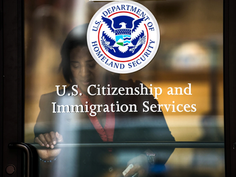Imran Khan Remains a Central Figure in Pakistan's Politics Despite a Year in Jail
- Thanuja Jayani
- Aug 7, 2024
- 2 min read
By T. Jayani, JadeTimes News

Pakistan’s former Prime Minister, Imran Khan, has been imprisoned for a year, yet his influence on the country's opposition politics remains undiminished. Despite his incarceration, Khan's presence is felt in the media and courts, with his supporters maintaining a strong social media campaign.
Khan communicates with the outside world through his lawyers and family, who assert that his time in prison has not broken his spirit. His sister, Aleema Khanum, emphasizes his resilience, stating he remains focused on his cause. Khan reportedly spends his days exercising, reading, and reflecting, viewing his imprisonment as an opportunity to gain more knowledge.
However, Khan and his wife, Bushra Bibi, remain in prison with no indication of imminent release. This situation is not unexpected, according to Michael Kugelman of the Wilson Centre, who notes that Pakistan’s powerful military typically does not relent once they decide to imprison a political figure. Khan's complicated relationship with the military, initially beneficial, deteriorated after his removal from power in a 2022 no confidence vote. Following his arrest on May 9, 2023, violent protests erupted, leading to attacks on military properties and subsequent media censorship of Khan.
After being briefly released, Khan was re-imprisoned on August 5 for failing to declare the sale of state gifts, among other charges. The mounting legal cases against him led to three long prison sentences just before the February election. Many PTI candidates, including Khan's lawyer Salman Akram Raja, faced significant challenges, with numerous candidates imprisoned or in hiding and the party stripped of its cricket bat symbol. Despite these obstacles, candidates aligned with Khan won the most seats, though his rivals formed an alliance to block them, forcing PTI to fight for their seats in court amid allegations of election rigging.
Supporters view the February 8 election as a turning point, demonstrating Khan's enduring influence. However, the practical implications are limited, as PTI did not form a government, and Khan remains in jail. Recent legal developments, including the overturning of Khan's sentences and a UN declaration of his detention as arbitrary, have yet to effect his release. Bushra Bibi also remains imprisoned on new charges despite the dismissal of her initial sentence.
The government continues to see Khan and PTI as threats, moving to ban the party, and the military shows no signs of easing its stance. Analysts suggest that reconciling with the military is crucial for Khan's release. His lawyer, Mr. Raja, expresses hope for a resolution that allows the political system to function, while Khan himself has called for the military to remain neutral and advocated for snap elections.
For now, the deadlock persists, with Khan's political future and the relationship with the military remaining pivotal factors.












































Comments